| The final installment of our 10-part series describing major news stories in Thailand in the last half century begins in 2012. The October issue covered 2007-2011. 2012 is the year Asia Atlantic Airlines, R Airlines, New Gen Airway and U Airlines were founded. CentralPlaza opened its first shopping mall in the southern province of Surat Thani. Avani Hotels & Resorts was founded. Bangkokthonburi University inaugurated the Chanchai Acadium indoor sporting arena, which can seat 5,000 spectators, and Singha Stadium opened in Chiang Rai province, with capacity for 11,354 fans. January • The Royal Thai Air Force formed its Blue Phoenix aerial aerobics team to mark the 100th anniversary of Thai aviation and gave their first public display on Children’s Day at Don Muang Air Force Base. The team is based at Nakhon Pathom’s Kamphaeng Saen Air Force Base. They fly blue, white and red Pilatus PC-9 aircraft. • Director-General of the Department of Special Investigations (DSI) Tarit Pengdith unveiled plans for his department after the cabinet gave DSI authority to investigate nine more categories of crime, including human trafficking, computer crimes and crimes relating to foreign businesses in Thailand. Tarit said the DSI would target foreigners who were exploiting loopholes in the legal system to use Thai nominees to run businesses not open to foreigners under the 1999 Foreign Business Act. |
• Education Minister Worawat Auapinyakul said Muslim students were not violating the Education Ministry dress code by wearing headscarves or hijabs. His remarks were in response to a recent rally by a Muslim group to protest the suspension of two students at Wat Nong Chok School in Bangkok for wearing headscarves in class.
• Rubber growers in the southern province of Songkhla set out to travel to the capital to join forces with other rubber growers from across the nation. The demonstrators called on the government to shore up rubber prices at 120 baht per kilogram.
• Prime Minister Yingluck Shinawatra urged the United States to revoke a terrorism warning immediately after the arrest of a suspected Hezbollah member linked to sabotage attempts in Bangkok. Defence Minister Yutthasak Sasiprapa quoted Ms Yingluck as saying the warning, if prolonged, could damage the country. However, US Embassy spokesman Walter Braunohler said the terrorist warning for American citizens remained valid despite the arrest and the discovery of an apparent bomb factory in Bangkok.
• On January 19 Thailand joined other UN member states in voicing official recognition of a Palestinian state. Foreign Ministry spokesman Thani Thongphakdi said Thailand’s recognition of Palestine had been ‘under consideration for some time’. The move was enthusiastically hailed by Palestinian leaders. In November 2013 the UN General Assembly voted overwhelmingly in support of recognition.
February
• The Department of Corrections announced it would seek about 3.5 billion baht from the 2013 budget to build a “super max” prison with hi-tech security systems for detaining major drug convicts, Justice Ministry spokesman Thirachai Wuthitham announced the plan at a press conference and said a meeting of prison chiefs and directors of narcotics suppression offices from throughout the country was scheduled to discuss measures to prevent inmates from dealing drugs in prisons.
August
• Thammasat University’s Chulabhorn International College of Medicine became the twenty-first medical school in Thailand. Located in Khlong Luang district of Pathum Thani province, it is the first institution in Thailand to provide an international, English-language course in medicine. Bumrungrad International Hospital cooperated with Thammasat University in setting up the medical school.
September
• Vorayuth “Boss” Yoovidhya, third son of Red Bull tycoon Chalerm
Yoovidhya, was arrested on September 3 on a hit-and-run charge. Police said Vorayuth admitted to investigators that he was driving the black Ferrari that collided with the motorcycle of 47-year-old Police Senior Sergeant-Major Klanprasert Wichian Klanprasert at about 5.30am on Sukhumvit Soi 47.
The policeman was dragged about 200 metres along the road, but the driver never stopped. Witnesses described the Ferrari and police found it parked at a mansion belonging to the Red Bull family on Sukhumvit 53. Vorayuth at first claimed his chauffeur was driving when the accident occurred, but later admitted he was at the wheel.
October
• As the yellow-shirt People’s Alliance for Democracy (PAD) weakened, General Boonlert Kaewprasit emerged as leader of a new anti-government movement called Pitak Siam (Protect Siam). The group managed to attract 20,000 people to its inaugural gathering at the Royal Turf Club on October 28.
December
• The Department of Special Investigation (DSI) charged former Prime Minister Abhisit Vejjajiva and
his former deputy Suthep Thangsuban with murder over the death of a taxi
driver allegedly shot dead by soldiers during the political violence in Bangkok
in May 2010. The DSI’s decision to press charges was influenced by a court ruling on September 17 the troops who killed Phan were acting on orders from state officials. If found guilty the two politicians could face the death penalty or life in prison.
2013 saw the opening of Chiang Mai International Convention Centre. It is the largest venue of its kind in Thailand outside Bangkok. Warrix Sports manufacturing company was established and Boomerang Thailand TV channel was launched. Political tensions once again heated up and reached the boiling point late in the year as large protests in Bangkok called for the resignation of PM Yingluck, the sister of former PM Thaksin Shinawatra.
February
• The Thai government agreed for the first time to hold peace talks with
Muslim militants in the South in an apparent breakthrough towards ending the conflict. Senior Thai government officials signed an agreement on February 23 with members of the Barisan Revolusi Nasional in Kuala Lumpur calling for a “dialogue process” in the southern border provinces. The agreement was signed ahead of a meeting between PM Yingluck and her Malaysian counterpart, Najib Razak.
March
• The Bangkok governor’s race was won by incumbent governor MR
Sukumbhand Paribatra of the Democrat Party. Twenty-five candidates contested the election. Sukumbhand won with 1,256,349 votes or 47.75% votes cast. Police General Pongsapat Pongcharoen representing the Pheu Thai party came second with 1,077,899 votes or 40.97% of votes cast. Voter turnout was 63.98%.
• On March 22, a fire at the Ban Mae Surin refugee camp in Mae Hong Son province reportedly killed 37 Karen refugees and destroyed hundreds of dwellings. The fire apparently started following a ‘cooking accident’.
February
• The Thai government agreed for the first time to hold peace talks with
Muslim militants in the South in an apparent breakthrough towards ending the conflict. Senior Thai government officials signed an agreement on February 23 with members of the Barisan Revolusi Nasional in Kuala Lumpur calling for a “dialogue process” in the southern border provinces. The agreement was signed ahead of a meeting between PM Yingluck and her Malaysian counterpart, Najib Razak.
March
• The Bangkok governor’s race was won by incumbent governor MR
Sukumbhand Paribatra of the Democrat Party. Twenty-five candidates contested the election. Sukumbhand won with 1,256,349 votes or 47.75% votes cast. Police General Pongsapat Pongcharoen representing the Pheu Thai party came second with 1,077,899 votes or 40.97% of votes cast. Voter turnout was 63.98%.
• On March 22, a fire at the Ban Mae Surin refugee camp in Mae Hong Son province reportedly killed 37 Karen refugees and destroyed hundreds of dwellings. The fire apparently started following a ‘cooking accident’.
| June • More than 1,000 farmers protested in Bangkok over the state’s failure to pay for rice bought under a subsidy scheme the government admitted it was struggling to fund. The unrest among farmers opened a new front against a government already facing off against the Bangkok-based protest movement. Protests blocking major Bangkok thoroughfares were mainly supported by middle-class urbanites who decried what they called corruption in the rice scheme. • PM Yingluck reshuffled her cabinet on June 30, the fifth time since her Pheu Thai-led coalition was installed. Changes were made to 18 cabinet posts. Among those sacked was Commerce Minister Boonsong Teriyapirom, who was taking heat for irregularities in the rice subsidy scheme. July • Government and separatist spokespersons announced a ceasefire in the South for the month of Ramadan. The agreement was the first major development since February, when the two sides agreed to talks. Attacks in the region still occurred almost daily despite several rounds of talks in Malaysia. • An oil spill occurred on July 27 in the Gulf of Thailand, off the coast of Ko Samet and Map Ta Phut in Rayong province. A pipeline owned by state-owned oil company PTTGC burst while oil was being transferred from an undersea well to a tanker. Bad weather thwarted containment efforts, and on the night of July 28 oil began washing onshore at Ko Samet. |
August
• Boomerang Thailand TV was launched on August 13. A Thai version of the original American Boomerang TV, the channel primarily shows animated programming.
November
• On November 1 tens of thousands of anti-government protesters rallied in Bangkok against a proposed amnesty bill for political offences committed since 2006. Critics claimed it was designed to protect deposed PM Thaksin and allow him to return to Thailand from self-exile in Dubai without facing any punishment.
• Anti-government protests in Bangkok drew ever larger crowds, and surrounded government and ministerial offices. On November 24 former Thai deputy prime minister Suthep Thaugsuban resigned from the opposition Democrat Party to lead the protests aimed at dislodging Yingluck’s government.
• On November 30 pro-Yingluck redshirts rallied in Bangkok and clashed with anti-government demonstrators. Four people were killed and dozens injured.
December
• Street clashes continued on December 1 and 2, but anti-Yingluck protesters in Bangkok failed in attempts to seize the prime minister’s office and police headquarters.
• On December 3 police withdrew from their headquarters, enabling anti-government protesters to stage a politically symbolic occupation of the complex as well as the nearby prime minister’s office.
• PM Yingluck refused to step down, and instead, on December 9, she announced early elections for February 2014. More than 100,000 anti-government protesters rallied in Bangkok streets demanding an end to the Shinawatra family’s influence in Thai politics.
• On December 12 charges relating to the crackdown on redshirt protesters in 2010 were revived against Abhisit and Suthep. In August 2014 the Criminal Court ruled that it had no authority to handle the case, although it could be tried by the Supreme Court’s Criminal Division for Holders of Political Positions.
• The opposition Democrat Party announced that it would boycott the elections unless they were preceded by political reforms.
• Violent street protests left one police officer dead and dozens of people injured on December 24.
| 2014 was the year the Central Embassy shopping mall operated by Central Group opened in Bangkok. Thai AirAsia X, NokScoot and Thai Vietjet Air airlines were founded. The Buriram International Circuit known as Chang International Circuit was christened in Buriram. January • On January 4 the Electoral Commission announced that the February elections would proceed as planned. • Anti-government protesters occupied key locations in Bangkok on January 14 in a bid to shut down the capital and force Yingluck’s resignation. • Tensions increased in Bangkok after a grenade attack on January 18 left one anti-government protester dead and more than 30 injured. • Anti-government protesters gathered for three days of marches in Bangkok January 29-31. It was seen as a last-minute effort to disrupt the general election. Government supporters and protesters opened fire on each other on the streets of Bangkok, wounding at least nine people. |
February
• The early general election was held amid widespread anti-government protests. The Election Commission announced that polling was disrupted in 69 out of 375 constituencies nationwide. PM Yingluck was expected to ultimately win, but an official result was withheld until a re-vote could be carried out in the provinces disrupted by protests. Meanwhile, Yingluck continued as caretaker prime minister.
March
• New elections were held on March 2 in five provinces where voting was
disrupted by anti-government protests in February, but election re-runs planned for April in other provinces were suspended pending a court decision on whether the election results could be considered constitutionally valid.
• On March 21 the Constitutional Court ruled that the February election was invalid because polls around the country were not all held on the same day, in violation of a constitutional clause. At this point Thailand had not had a functioning Parliament since December, and no end to the stalemate was in sight.
• Caretaker PM Yingluck appeared before the National Anti-Corruption
Commission on March 31 to defend herself against charges that could lead to her removal from office. She was charged with dereliction of duty in overseeing the government rice-buying scheme. The scheme ran up huge losses and left hundreds of thousands of farmers unpaid.
April
• Prince Mahidol Hall at Mahidol University in Nakhon Pathom province was inaugurated on April 14 by Her Royal Highness Princess Maha Chakri Sirindhorn. A performance was given by the Thailand Philharmonic Orchestra. The hall, located at Mahidol
University in Nakhon Pathom province.
• After talks between Yingluck and the Election Commission, it was announced on April 30 that a new general election was scheduled for July 20.
May
• On May 6 caretaker PM Yingluck appeared before the Constitutional Court to answer charges of alleged abuse of power stemming from the transfer of National Security Council chief Thawil Pliensri in 2011, which her opponents said was designed to benefit Pheu Thai Party.
• On May 7 the Constitutional Court delivered a guilty verdict, dismissing Yingluck and nine of her ministers for abuse of power. In a televised news conference after the verdict she said: “Throughout my time as prime minister I have given my all to my work for the benefit of my countrymen ... I have never committed any unlawful acts as I have been accused of doing.” Commerce Minister Niwatthamrong Boonsongphaisan stepped into the prime minister’s role and said the caretaker government would press ahead with plans for a July 20 election.
• On May 8 former PM Yingluck was found guilty of negligence in the state rice-buying scheme.
• On May 15 the Election Commission called for postponement of the July 20 election because of the escalating political unrest. The appeal came after three anti-government protestors were killed and 23 wounded in a gun and grenade attack on their protest site in Bangkok.
• On May 20 it was announced by the military that martial law had been invoked “to restore peace and order for people from all sides”. The announcement stressed that this “was not a coup” and urged people not to panic and to go about their lives as normal. The Thai government said it was not consulted in advance of the military declaration, and added that acting PM Niwattumrong Boonsongpaisan was still the head of government.
• On May 22, Royal Thai Army (RTA) forces led by General Prayuth Chan-o- cha, Commander of the RTA, officially launched a coup d’état against the caretaker government. In the evening General Prayuth announced on live television that the armed forces were assuming control of the nation’s administration to bring peace and order after six months of constant political crisis. The National Council for Peace and Order (NCPO) was established to govern the country. After dissolving the government and the Senate, the NCPO vested executive and legislative powers in General Prayuth and ordered the judicial branch to operate under its directives. It partially repealed the 2007 constitution, took control of the media and declared martial law and curfews nationwide. Political gatherings were banned and some politicians and anti-coup activists were arrested and detained.
• The early general election was held amid widespread anti-government protests. The Election Commission announced that polling was disrupted in 69 out of 375 constituencies nationwide. PM Yingluck was expected to ultimately win, but an official result was withheld until a re-vote could be carried out in the provinces disrupted by protests. Meanwhile, Yingluck continued as caretaker prime minister.
March
• New elections were held on March 2 in five provinces where voting was
disrupted by anti-government protests in February, but election re-runs planned for April in other provinces were suspended pending a court decision on whether the election results could be considered constitutionally valid.
• On March 21 the Constitutional Court ruled that the February election was invalid because polls around the country were not all held on the same day, in violation of a constitutional clause. At this point Thailand had not had a functioning Parliament since December, and no end to the stalemate was in sight.
• Caretaker PM Yingluck appeared before the National Anti-Corruption
Commission on March 31 to defend herself against charges that could lead to her removal from office. She was charged with dereliction of duty in overseeing the government rice-buying scheme. The scheme ran up huge losses and left hundreds of thousands of farmers unpaid.
April
• Prince Mahidol Hall at Mahidol University in Nakhon Pathom province was inaugurated on April 14 by Her Royal Highness Princess Maha Chakri Sirindhorn. A performance was given by the Thailand Philharmonic Orchestra. The hall, located at Mahidol
University in Nakhon Pathom province.
• After talks between Yingluck and the Election Commission, it was announced on April 30 that a new general election was scheduled for July 20.
May
• On May 6 caretaker PM Yingluck appeared before the Constitutional Court to answer charges of alleged abuse of power stemming from the transfer of National Security Council chief Thawil Pliensri in 2011, which her opponents said was designed to benefit Pheu Thai Party.
• On May 7 the Constitutional Court delivered a guilty verdict, dismissing Yingluck and nine of her ministers for abuse of power. In a televised news conference after the verdict she said: “Throughout my time as prime minister I have given my all to my work for the benefit of my countrymen ... I have never committed any unlawful acts as I have been accused of doing.” Commerce Minister Niwatthamrong Boonsongphaisan stepped into the prime minister’s role and said the caretaker government would press ahead with plans for a July 20 election.
• On May 8 former PM Yingluck was found guilty of negligence in the state rice-buying scheme.
• On May 15 the Election Commission called for postponement of the July 20 election because of the escalating political unrest. The appeal came after three anti-government protestors were killed and 23 wounded in a gun and grenade attack on their protest site in Bangkok.
• On May 20 it was announced by the military that martial law had been invoked “to restore peace and order for people from all sides”. The announcement stressed that this “was not a coup” and urged people not to panic and to go about their lives as normal. The Thai government said it was not consulted in advance of the military declaration, and added that acting PM Niwattumrong Boonsongpaisan was still the head of government.
• On May 22, Royal Thai Army (RTA) forces led by General Prayuth Chan-o- cha, Commander of the RTA, officially launched a coup d’état against the caretaker government. In the evening General Prayuth announced on live television that the armed forces were assuming control of the nation’s administration to bring peace and order after six months of constant political crisis. The National Council for Peace and Order (NCPO) was established to govern the country. After dissolving the government and the Senate, the NCPO vested executive and legislative powers in General Prayuth and ordered the judicial branch to operate under its directives. It partially repealed the 2007 constitution, took control of the media and declared martial law and curfews nationwide. Political gatherings were banned and some politicians and anti-coup activists were arrested and detained.
| July • On July 22 His Majesty King Bhumibol Adulyadej assented to and signed the 2014 interim constitution enacted by the NCPO. The interim constitution came into force on that day and replaced the 2007 constitution. August • On August 21 General Prayuth was named Thailand’s 29th prime minister following a 191-0 vote in Parliament. September • The first issue of Thai edition of the international monthly men’s magazine GQ was launched. The issue had a triple fold-out cover, with pictures of eight well-known Thai men. November • Parliament banned the trade of babies born through surrogate pregnancies in response to growing public opposition to the practice. December • Widespread flooding hit the South, affecting hundreds of thousands of people. Many districts in Narathiwat, Songkhla and Yala provinces were declared disaster zones. As of December 30, 15 people were reportedly killed in the flooding. |
2015 witnessed the establishment of the Bangkok Gay and Lesbian Film Festival by the staff of Attitude Magazine, an LGBT-oriented weekly publication. CentralPlaza Westgate shopping plaza and complex opened in Nonthaburi, as did EmQuartier, a large upscale shopping mall opposite the Emporium on Sukhumvit Road.
April
• On April 8 Thailand and Russia pledged to boost cooperation in a press
conference chaired jointly by PM Prayuth and his Russian counterpart Dmitry Medvedev. He was the first Russian premier to visit Thailand since the collapse of the Soviet Union. Ten memorandums of understanding were signed during his visit.
• His Majesty the King endorsed a request by PM Prayuth to revoke martial law throughout the country. The lifting of martial law paved the way for Prayuth to impose Section 44 of the interim constitution, which enabled the NCPO chief to exercise powers of the executive, legislative and judicial branches of government.
August
• His Royal Highness Crown Prince Maha Vajiralongkorn and Her Royal
Highness Princess Bajra Kitiyabha led thousands of cyclists in Bangkok in the “Bike for Mom” cycling event on August 16 to mark Her Majesty the Queen’s 83rd birthday. Also on their bikes were General Prayuth, Deputy Defence Minister Udomdej Sitabutr, Supreme Court President Direk Ingkaninant, Constitutional Court President Nurak Mapraneet, National Legislative Assembly Chairman Pornpetch Wichitcholachai, and Interior Minister Anupong Paojinda and a host of other high level government representatives. Hundreds of thousands more cyclists across the country took part in the event.
• On August 17, a bomb rocked the Hindu Erawan Shrine near Ratchaprasong intersection in the center of Bangkok. As always during the day there was a large group of worshippers at the shrine. The blast killed 20 people and injured 125. The Royal Thai Police said three kilograms of TNT had been stuffed in a pipe and left under a bench in the outer area of the shrine. Surveillance footage showed a suspect leaving a backpack at the scene and walking off shortly before the explosion.
September
• HRH Crown Prince Maha Vajiralongkorn, accompanied by his daughter Princess Bajrakitiyabha, presided over the opening ceremonies of Rajabhakdi Park in Hua Hin on September 26. The park is historically themed, honoring past Thai kings from the Sukhothai period to the current Chakri era. The park is located in Hua Hin, Prachuap Khiri Khan province. King Bhumibol Adulyadej gave the historical park the name “Rajabhakti Park”, which means “the park that has been built with people’s loyalty to the monarchs”. One part of the park dominated by the statues of seven notable Thai kings. Each statue is made of bronze, with an average height of 13.9 meters.
October
• Minister of Tourism Kobkarn Wattanavrangkul said it was expected that tourist totals from China would reach seven million in 2015, compared to 4.63 million the year before. This was in spite of the deadly bombing in August at the Erawan Shrine, a site that is very popular with Chinese tourists. Minister Kobkarn attributed continuing high levels of arrivals from China to confidence in the RTP’s investigation of the bombing. At the time two people were being detained on suspicion of carrying out the attack, which the authorities believed stemmed from a crackdown on human traffickers.
December
• Director of Thai Interpol Police Major General Apichart Suribunya said on December 8 that there was “no credible” threat of an attack by suspected members of Islamic State following a warning by the Russian intelligence service that 10 Syrians linked to Islamic State had entered the country. Nevertheless, Thai authorities stepped up security around potential targets in Pattaya and Phuket, where many Russians live.
• Crown Prince Maha Vajiralongkorn’s ‘Bike for Dad’ event on December 11, the King’s birthday, was a tremendous success. The Crown Prince led a procession of 99,999 cyclists who joined a 29-kilometre bike ride in Bangkok. HRH Princess Bajrakitiyabha and HRH Princess Sirivannavari Nariratana also joined him in the event. The ride which started at the Royal Plaza in Dusit district and looped through many areas of the city. Well-wishers thronged roadsides to see the Prince leading the peloton, chanting “long live the King”. Hundreds of thousands of riders participated in similar events nationwide.
April
• On April 8 Thailand and Russia pledged to boost cooperation in a press
conference chaired jointly by PM Prayuth and his Russian counterpart Dmitry Medvedev. He was the first Russian premier to visit Thailand since the collapse of the Soviet Union. Ten memorandums of understanding were signed during his visit.
• His Majesty the King endorsed a request by PM Prayuth to revoke martial law throughout the country. The lifting of martial law paved the way for Prayuth to impose Section 44 of the interim constitution, which enabled the NCPO chief to exercise powers of the executive, legislative and judicial branches of government.
August
• His Royal Highness Crown Prince Maha Vajiralongkorn and Her Royal
Highness Princess Bajra Kitiyabha led thousands of cyclists in Bangkok in the “Bike for Mom” cycling event on August 16 to mark Her Majesty the Queen’s 83rd birthday. Also on their bikes were General Prayuth, Deputy Defence Minister Udomdej Sitabutr, Supreme Court President Direk Ingkaninant, Constitutional Court President Nurak Mapraneet, National Legislative Assembly Chairman Pornpetch Wichitcholachai, and Interior Minister Anupong Paojinda and a host of other high level government representatives. Hundreds of thousands more cyclists across the country took part in the event.
• On August 17, a bomb rocked the Hindu Erawan Shrine near Ratchaprasong intersection in the center of Bangkok. As always during the day there was a large group of worshippers at the shrine. The blast killed 20 people and injured 125. The Royal Thai Police said three kilograms of TNT had been stuffed in a pipe and left under a bench in the outer area of the shrine. Surveillance footage showed a suspect leaving a backpack at the scene and walking off shortly before the explosion.
September
• HRH Crown Prince Maha Vajiralongkorn, accompanied by his daughter Princess Bajrakitiyabha, presided over the opening ceremonies of Rajabhakdi Park in Hua Hin on September 26. The park is historically themed, honoring past Thai kings from the Sukhothai period to the current Chakri era. The park is located in Hua Hin, Prachuap Khiri Khan province. King Bhumibol Adulyadej gave the historical park the name “Rajabhakti Park”, which means “the park that has been built with people’s loyalty to the monarchs”. One part of the park dominated by the statues of seven notable Thai kings. Each statue is made of bronze, with an average height of 13.9 meters.
October
• Minister of Tourism Kobkarn Wattanavrangkul said it was expected that tourist totals from China would reach seven million in 2015, compared to 4.63 million the year before. This was in spite of the deadly bombing in August at the Erawan Shrine, a site that is very popular with Chinese tourists. Minister Kobkarn attributed continuing high levels of arrivals from China to confidence in the RTP’s investigation of the bombing. At the time two people were being detained on suspicion of carrying out the attack, which the authorities believed stemmed from a crackdown on human traffickers.
December
• Director of Thai Interpol Police Major General Apichart Suribunya said on December 8 that there was “no credible” threat of an attack by suspected members of Islamic State following a warning by the Russian intelligence service that 10 Syrians linked to Islamic State had entered the country. Nevertheless, Thai authorities stepped up security around potential targets in Pattaya and Phuket, where many Russians live.
• Crown Prince Maha Vajiralongkorn’s ‘Bike for Dad’ event on December 11, the King’s birthday, was a tremendous success. The Crown Prince led a procession of 99,999 cyclists who joined a 29-kilometre bike ride in Bangkok. HRH Princess Bajrakitiyabha and HRH Princess Sirivannavari Nariratana also joined him in the event. The ride which started at the Royal Plaza in Dusit district and looped through many areas of the city. Well-wishers thronged roadsides to see the Prince leading the peloton, chanting “long live the King”. Hundreds of thousands of riders participated in similar events nationwide.
| 2016 is the year at least 35 new local football clubs were formed. Towards the end of the year, in October, a great sadness descended on the country when it was learned that King Bhumibol Adulyadej, the world’s longest reigning monarch, had died at the age of 88 after 70 years on the throne. The nation immediately went into mourning. January • GDH film studio, a subsidiary of Thai entertainment conglomerate GMM Grammy, was founded on January 5 as successor to GMM Tai Hub Thailand’s most successful film studio of the previous decade which was dissolved in December 2015. GDH was said to stand for ‘Gross Domestic Happiness’. April • Banharn Silpa-archa died at Siriraj Hospital on April 23 at the age of 83. One of Thailand’s best known and most influential politicians, Banharn was prime minister in 1995-6 and an 11-time Suphan Buri MP. He joined the Chart Thai Party in 1976, and led the party for many years until it was dissolved by the Constitutional Court in 2008. The Chartthaipattana Party was then formed to replace it. March • The NCPO unveiled a draft constitution on March 29 to replace the interim constitution. |
June
• On June 23 hundreds of migrants from Myanmar gave Nobel Peace Prize laureate Aung San Suu Kyi a thunderous welcome on her first visit to Thailand since her National League for Democracy swept to election victory in November. During her visit Suu Kyi met with PM Prayuth and they signed agreements aimed at protecting the estimated two to three million migrant workers from Myanmar in Thailand.
August
• A referendum was held on August 7 on the new constitution, which offered only semi-democracy and tightened the hold of the military on the country indefinitely. The vote was 61.4% to 38.6% in favor. A proposal for the next PM to be jointly elected by Senators and MPs was also approved. Opposition groups were barred from formally campaigning against either measure.
• A string of bombings in several tourist towns in the far South killed four people and wounded dozens.
September
• The government said on September 1 that peace talks in Malaysia with Muslim separatists operating in the far South would resume, but no agreement would be signed unless the insurgents observed a ceasefire.
• On September 9 Thailand and Malaysia agreed to boost security cooperation and consider building a border wall to combat transnational crime and smuggling. PM Prayuth told reporters after the meeting in Kuala Lumpur that both countries ‘‘face security issues including the fight against terrorism, human trafficking and illegal smuggling, and we need to address these issues seriously.”
• The Ministry of Public Health launched a new National AIDS Strategy for 2017-2030 which provided a road map for ending the AIDS epidemic as a public health threat in Thailand by 2030. A recent UNAIDS report had found that annual new HIV infections dropped by 50% in Thailand between 2010 and 2016, the steepest decline for any country in the Asia and Pacific region.
October
• On the afternoon of October 13 it was announced His Majesty Bhumibol Adulyadej had passed away at the age of 88 after a long illness. A year-long period of mourning was subsequently announced so that the public could grieve for the monarch who had done so much to guide the nation and hold it together in times of trouble. Entertainment venues were temporarily closed altogether and all festivities outside, including the traditional New Year’s Eve countdown at CentralWorld, were prohibited. Please see the October 2017 issue of The BigChilli: His Majesty King Bhumibol Adulyadej, ‘Father of the Nation’. See: https://issuu.com/thebigchilli/docs/the_bigchilli_october_2017
November
• On November 7 Thailand’s rice committee announced new loan schemes worth 18 billion baht to help rice growers struggling with falling prices. The tumbling rice price sent the ruling junta scrambling to roll out rescue packages as the opposition tried to woo politically powerful rice farmers ahead of a general election that was expected in late 2017 but was later postponed.
December
• On December 1 Crown Prince Maha Vajiralongkorn accepted the invitation of National Legislative Assembly President Pornpetch Wichitcholchai to ascend the throne, and thus became King Rama X, the tenth monarch of the Chakri dynasty.
• On June 23 hundreds of migrants from Myanmar gave Nobel Peace Prize laureate Aung San Suu Kyi a thunderous welcome on her first visit to Thailand since her National League for Democracy swept to election victory in November. During her visit Suu Kyi met with PM Prayuth and they signed agreements aimed at protecting the estimated two to three million migrant workers from Myanmar in Thailand.
August
• A referendum was held on August 7 on the new constitution, which offered only semi-democracy and tightened the hold of the military on the country indefinitely. The vote was 61.4% to 38.6% in favor. A proposal for the next PM to be jointly elected by Senators and MPs was also approved. Opposition groups were barred from formally campaigning against either measure.
• A string of bombings in several tourist towns in the far South killed four people and wounded dozens.
September
• The government said on September 1 that peace talks in Malaysia with Muslim separatists operating in the far South would resume, but no agreement would be signed unless the insurgents observed a ceasefire.
• On September 9 Thailand and Malaysia agreed to boost security cooperation and consider building a border wall to combat transnational crime and smuggling. PM Prayuth told reporters after the meeting in Kuala Lumpur that both countries ‘‘face security issues including the fight against terrorism, human trafficking and illegal smuggling, and we need to address these issues seriously.”
• The Ministry of Public Health launched a new National AIDS Strategy for 2017-2030 which provided a road map for ending the AIDS epidemic as a public health threat in Thailand by 2030. A recent UNAIDS report had found that annual new HIV infections dropped by 50% in Thailand between 2010 and 2016, the steepest decline for any country in the Asia and Pacific region.
October
• On the afternoon of October 13 it was announced His Majesty Bhumibol Adulyadej had passed away at the age of 88 after a long illness. A year-long period of mourning was subsequently announced so that the public could grieve for the monarch who had done so much to guide the nation and hold it together in times of trouble. Entertainment venues were temporarily closed altogether and all festivities outside, including the traditional New Year’s Eve countdown at CentralWorld, were prohibited. Please see the October 2017 issue of The BigChilli: His Majesty King Bhumibol Adulyadej, ‘Father of the Nation’. See: https://issuu.com/thebigchilli/docs/the_bigchilli_october_2017
November
• On November 7 Thailand’s rice committee announced new loan schemes worth 18 billion baht to help rice growers struggling with falling prices. The tumbling rice price sent the ruling junta scrambling to roll out rescue packages as the opposition tried to woo politically powerful rice farmers ahead of a general election that was expected in late 2017 but was later postponed.
December
• On December 1 Crown Prince Maha Vajiralongkorn accepted the invitation of National Legislative Assembly President Pornpetch Wichitcholchai to ascend the throne, and thus became King Rama X, the tenth monarch of the Chakri dynasty.
2017 saw the Thai girl idol group BNK48 released its first recording to great success. BNK48 members formed the group to emulate the Japanese act known as AKB48. Due to heavy losses, the well-known3K Battery brand went out of business in mid-2017 after 30 years of manufacturing automotive and motorcycle batteries. The nation continued to grieve for its departed King. Most citizens chose to continue wearing mourning colors and public gatherings of all sorts were subdued. For the first time in memory streets were clear of water-throwing masses during Songkran. The funeral ceremony for King Rama IX was held in October.
January
• The floods in southern Thailand that started in December 2016 and persisted throughout January were declared to be the worst in more than 30 years. Director-General of the Disaster Prevention and Mitigation Department Chatchai Promlert said 1.7 million people had been affected, 85 people were confirmed dead and four still missing.
February
• Thailand was the world’s most congested country in 2016, according to a study released by INRIX, a company that specializes in transportation analytics. The study said drivers in Thailand spent an average of 64.1 hours stuck in traffic during the year, followed by motorists in Colombia and Indonesia who spent an average of 47 hours.
• Thai police failed to apprehend Phra Dhammachayo, an influential Buddhist leader wanted for money-laundering who had reportedly hidden himself behind the monastic walls of Dhammachayo Temple in Pathum Thani. After searching his sect’s vast headquarters, police said they found medical equipment in rooms where they expected to find the 72-year-old former abbot. They pledged to keep looking. Previous attempts to search the complex were thwarted when thousands of Phra Dhammajayo’s devotees turned up. The money-laundering charges were in connection with alleged embezzlement at the Klongchan Credit Union Cooperative.AddThis Sharing Buttons Share to Facebook26Share to TwitterShare to LINEShare to Google+Share to Mo
March
• Police said they were pursuing more than 350 legal cases against Phra Dhammachayo and his Dhammakaya Temple. Deputy National Police Commissioner Police General Srivara Ransibrahmanakul said on March 6 that of these cases, more than 10 had led to the issuance of new arrest warrants.
January
• The floods in southern Thailand that started in December 2016 and persisted throughout January were declared to be the worst in more than 30 years. Director-General of the Disaster Prevention and Mitigation Department Chatchai Promlert said 1.7 million people had been affected, 85 people were confirmed dead and four still missing.
February
• Thailand was the world’s most congested country in 2016, according to a study released by INRIX, a company that specializes in transportation analytics. The study said drivers in Thailand spent an average of 64.1 hours stuck in traffic during the year, followed by motorists in Colombia and Indonesia who spent an average of 47 hours.
• Thai police failed to apprehend Phra Dhammachayo, an influential Buddhist leader wanted for money-laundering who had reportedly hidden himself behind the monastic walls of Dhammachayo Temple in Pathum Thani. After searching his sect’s vast headquarters, police said they found medical equipment in rooms where they expected to find the 72-year-old former abbot. They pledged to keep looking. Previous attempts to search the complex were thwarted when thousands of Phra Dhammajayo’s devotees turned up. The money-laundering charges were in connection with alleged embezzlement at the Klongchan Credit Union Cooperative.AddThis Sharing Buttons Share to Facebook26Share to TwitterShare to LINEShare to Google+Share to Mo
March
• Police said they were pursuing more than 350 legal cases against Phra Dhammachayo and his Dhammakaya Temple. Deputy National Police Commissioner Police General Srivara Ransibrahmanakul said on March 6 that of these cases, more than 10 had led to the issuance of new arrest warrants.
| April • On April 6 H.M. King Rama X officially endorsed the promulgation of the country’s 20th constitution, setting the stage for a general election expected to be held by late 2018. • A message was posted on a Thai government website asking people to report sites that carried content which defamed the royal family, and gave details on how to report such incidents. • The private sector expressed support for the government’s plan to extend 99-year land leases to foreign investors. “If the government opens up the opportunity for foreign buyers to hold residential leases for up to 99 years, like Singapore and Malaysia do, it will boost residential demand as the country is the gateway to the ASEAN Economic Community,” said Thai Condominium Association president Prasert Taedullayasatit. • The Justice Ministry said it would seek the arrest of Red Bull heir Vorayuth Yoovidhya after he failed to show up in court on April 27 to face charges stemming from the hit-and-run collision that killed a police officer in 2012. It was the eighth time Vorayuth had missed legal proceedings that commenced in 2016. Vorayuth is charged with speeding, hit-and-run and reckless driving causing death. He was known to have spent much of the previous five years abroad, including in London and Singapore. |
May
• On May 5, the government revoked the passport of Vorayuth, who it was learned had left Thailand for Singapore on April 25, two days before he was due to report to prosecutors to be formally charged in court.
September
• The government announced 73 billion baht in loans and handouts to help struggling rice farmers. The Agriculture and Cooperatives Ministry said it would provide 52 billion baht in handouts to farmers and 21 billion baht in loans that would be extended to 3.7 million households. The announcement came a week after former PM Yingluck fled the country ahead of a court verdict in a criminal negligence case over the rice subsidy scheme initiated by her government.
October
• On October 18 the only son of fugitive former PM Thaksin was formally charged with money-laundering, said the Department of Special Investigations (DSI). Panthongtae Shinawatra was accused of receiving a 10 million baht check in 2004 that was related to an earlier corruption case involving fraudulent loans extended by the state-owned Krungthai Bank when his father was prime minister. The deputy spokesman of the DSI, Woranan Srilum, said Panthongtae had turned himself in on October 17 but had been released as no arrest warrant had been issued.
• The royal funeral ceremony for His Majesty King Bhumibol Adulyadej took place in the last half of October. On October 14 the body of the late king was carried in a motorcade from Siriraj Hospital to the Grand Palace. The procession left Gate 8 of the hospital around 4.30pm. As the cortege passed Arun Ammarin Road, Phra Pin Klao Bridge, and Ratchadamnoen Road, huge crowds of black-clad mourners, many openly sobbing, paid their last respects. Led by Somdej Phra Vanarata (Chun Brahmagutto), the abbot of Wat Bowonniwet Vihara, the motorcade entered the palace via Thewaphirom Gate. Upon arrival at the palace, the King’s body was given the bathing rite.
• The actual cremation was held in late evening of October 26. Following cremation the King’s remains and ashes were taken to the Grand Palace and enshrined at the Chakri Maha Phasat Throne Hall, the Royal Cemetery at Wat Ratchabophit and Wat Bowonniwet Vihara Royal Temple. The official mourning period ended on midnight October 30, and the next day color returned to the streets of Bangkok.
November
• Thailand’s defense technology agency announced plans to set up a joint center with China to produce and maintain state-of-the-art military equipment. There were also discussions about a Chinese naval center to serve submarines Thailand had ordered from China earlier in the year. It was the latest sign of the strengthening Sino-Thai security relationship since the 2014 coup. Thailand has long been considered the US’s most steadfast ally in Southeast Asia.
December
• IBF Muaythai, commissioned under the International Boxing Federation to regulate, control and supervise professional Muay Thai events worldwide, held its first convention in Bangkok on December 21-22.
• The estimated figure for foreign tourists visiting Thailand during 2017 was released, a staggering, record-breaking 35 million visitors. China remained the number one source with 9.92 million, a +13.23% change year-on-year. The only nation to see a drop in visitors was Malaysia (-5.5%), while Russia posted the biggest year-on-year increase (+22.95%).
• Ahead of an expected visit by a US envoy seeking to step up pressure on North Korea over its weapons program, PM Prayuth said no trade was taking place between Thailand and North Korea. Prayuth guaranteed that Thailand had abided by all UN resolutions on North Korea and dismissed reports of North Korean vessels in Thai waters.
• On May 5, the government revoked the passport of Vorayuth, who it was learned had left Thailand for Singapore on April 25, two days before he was due to report to prosecutors to be formally charged in court.
September
• The government announced 73 billion baht in loans and handouts to help struggling rice farmers. The Agriculture and Cooperatives Ministry said it would provide 52 billion baht in handouts to farmers and 21 billion baht in loans that would be extended to 3.7 million households. The announcement came a week after former PM Yingluck fled the country ahead of a court verdict in a criminal negligence case over the rice subsidy scheme initiated by her government.
October
• On October 18 the only son of fugitive former PM Thaksin was formally charged with money-laundering, said the Department of Special Investigations (DSI). Panthongtae Shinawatra was accused of receiving a 10 million baht check in 2004 that was related to an earlier corruption case involving fraudulent loans extended by the state-owned Krungthai Bank when his father was prime minister. The deputy spokesman of the DSI, Woranan Srilum, said Panthongtae had turned himself in on October 17 but had been released as no arrest warrant had been issued.
• The royal funeral ceremony for His Majesty King Bhumibol Adulyadej took place in the last half of October. On October 14 the body of the late king was carried in a motorcade from Siriraj Hospital to the Grand Palace. The procession left Gate 8 of the hospital around 4.30pm. As the cortege passed Arun Ammarin Road, Phra Pin Klao Bridge, and Ratchadamnoen Road, huge crowds of black-clad mourners, many openly sobbing, paid their last respects. Led by Somdej Phra Vanarata (Chun Brahmagutto), the abbot of Wat Bowonniwet Vihara, the motorcade entered the palace via Thewaphirom Gate. Upon arrival at the palace, the King’s body was given the bathing rite.
• The actual cremation was held in late evening of October 26. Following cremation the King’s remains and ashes were taken to the Grand Palace and enshrined at the Chakri Maha Phasat Throne Hall, the Royal Cemetery at Wat Ratchabophit and Wat Bowonniwet Vihara Royal Temple. The official mourning period ended on midnight October 30, and the next day color returned to the streets of Bangkok.
November
• Thailand’s defense technology agency announced plans to set up a joint center with China to produce and maintain state-of-the-art military equipment. There were also discussions about a Chinese naval center to serve submarines Thailand had ordered from China earlier in the year. It was the latest sign of the strengthening Sino-Thai security relationship since the 2014 coup. Thailand has long been considered the US’s most steadfast ally in Southeast Asia.
December
• IBF Muaythai, commissioned under the International Boxing Federation to regulate, control and supervise professional Muay Thai events worldwide, held its first convention in Bangkok on December 21-22.
• The estimated figure for foreign tourists visiting Thailand during 2017 was released, a staggering, record-breaking 35 million visitors. China remained the number one source with 9.92 million, a +13.23% change year-on-year. The only nation to see a drop in visitors was Malaysia (-5.5%), while Russia posted the biggest year-on-year increase (+22.95%).
• Ahead of an expected visit by a US envoy seeking to step up pressure on North Korea over its weapons program, PM Prayuth said no trade was taking place between Thailand and North Korea. Prayuth guaranteed that Thailand had abided by all UN resolutions on North Korea and dismissed reports of North Korean vessels in Thai waters.

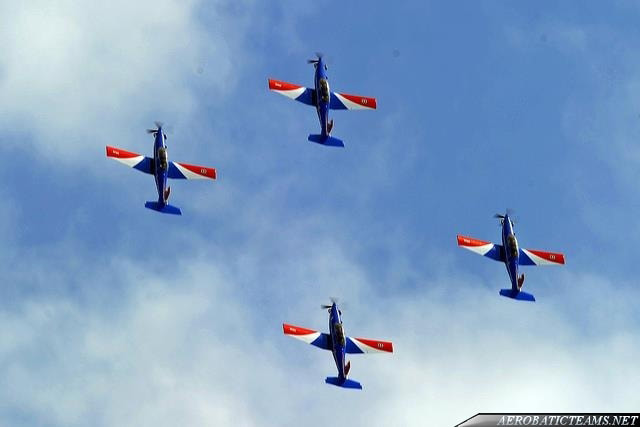
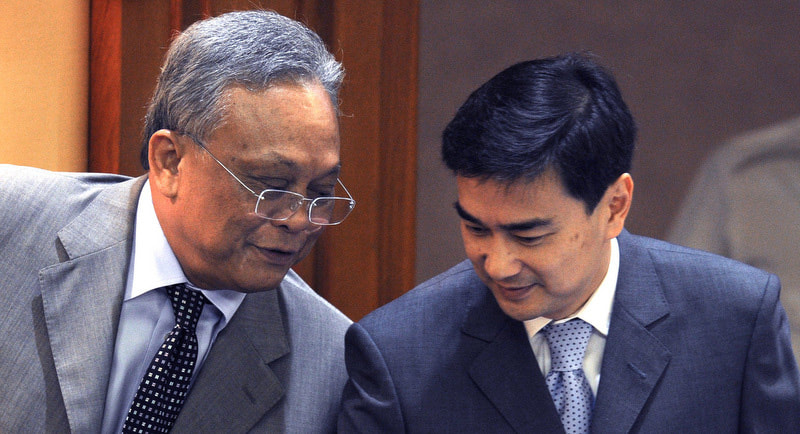
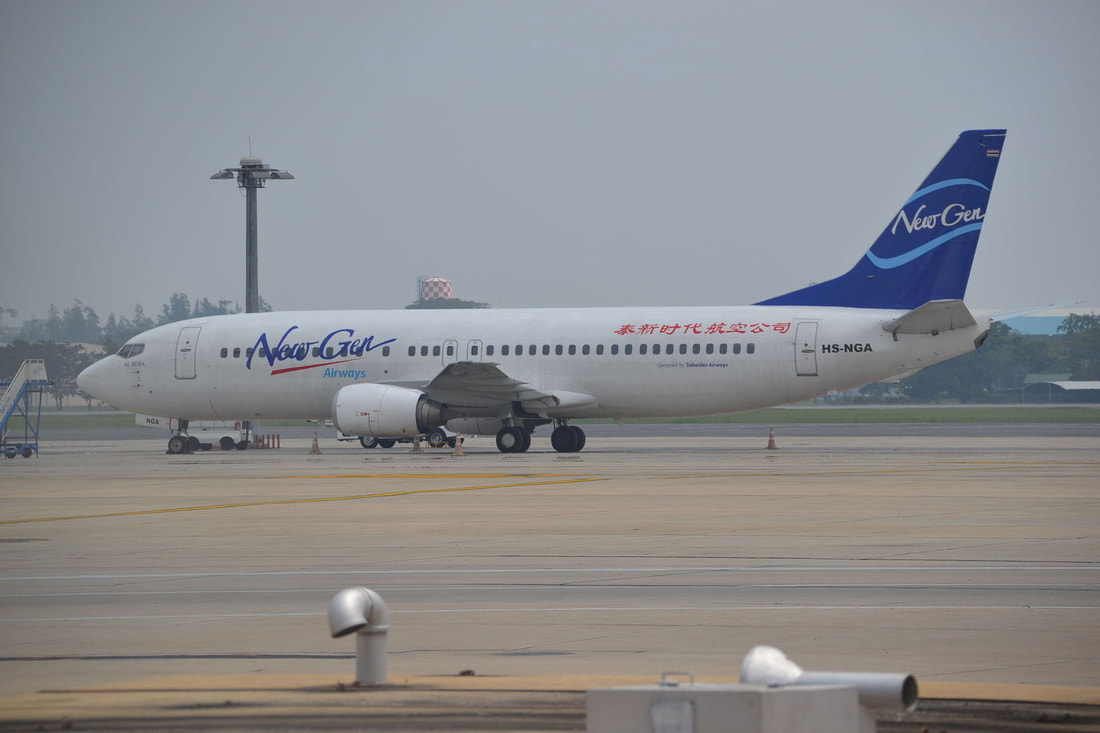
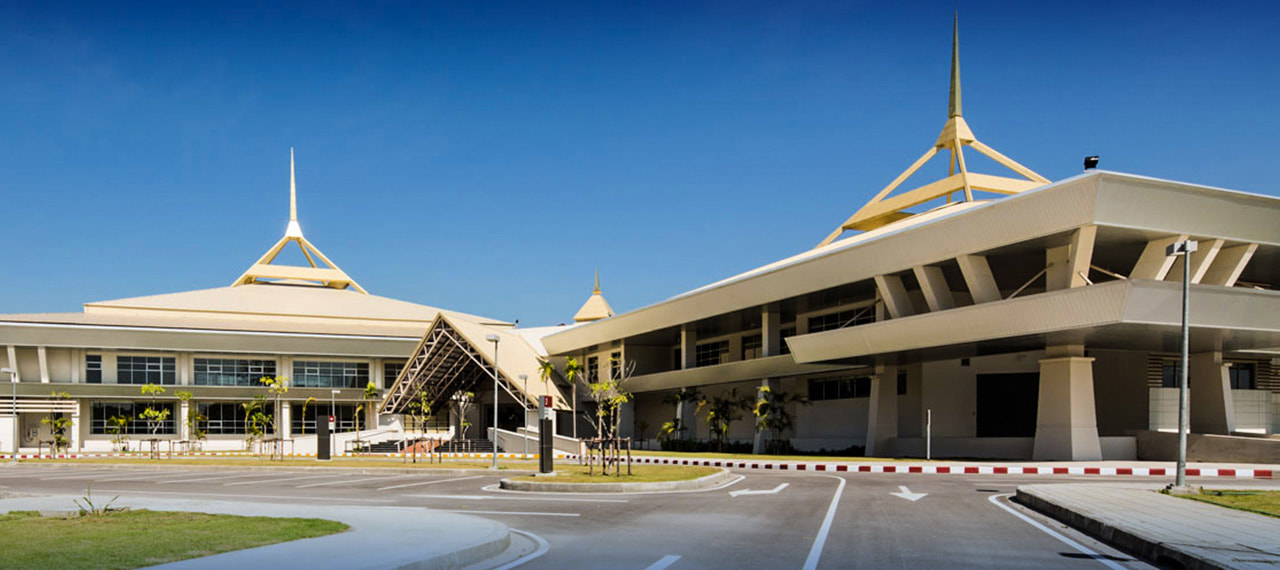
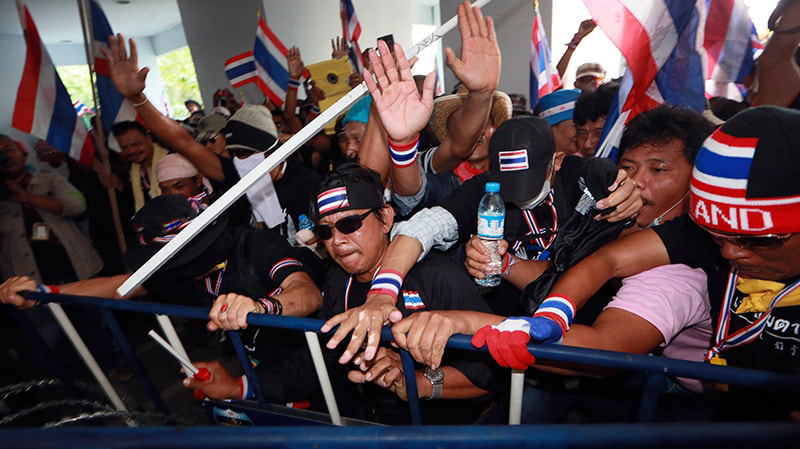
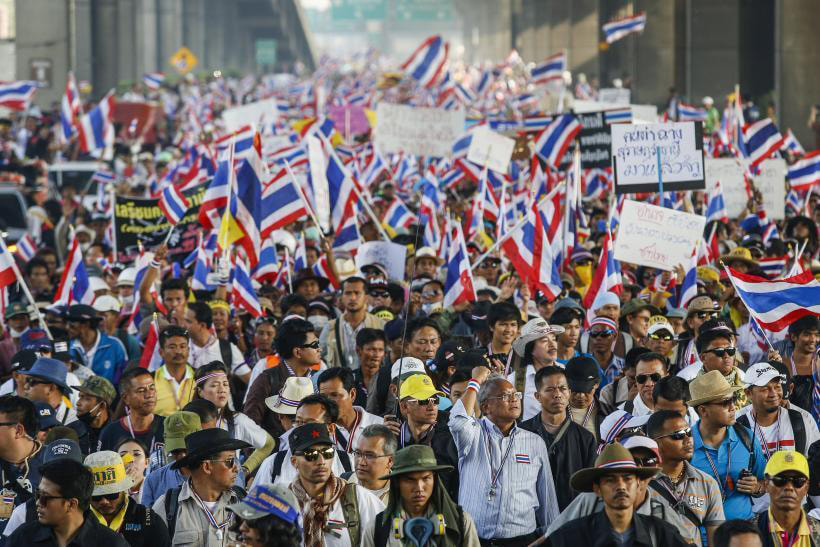
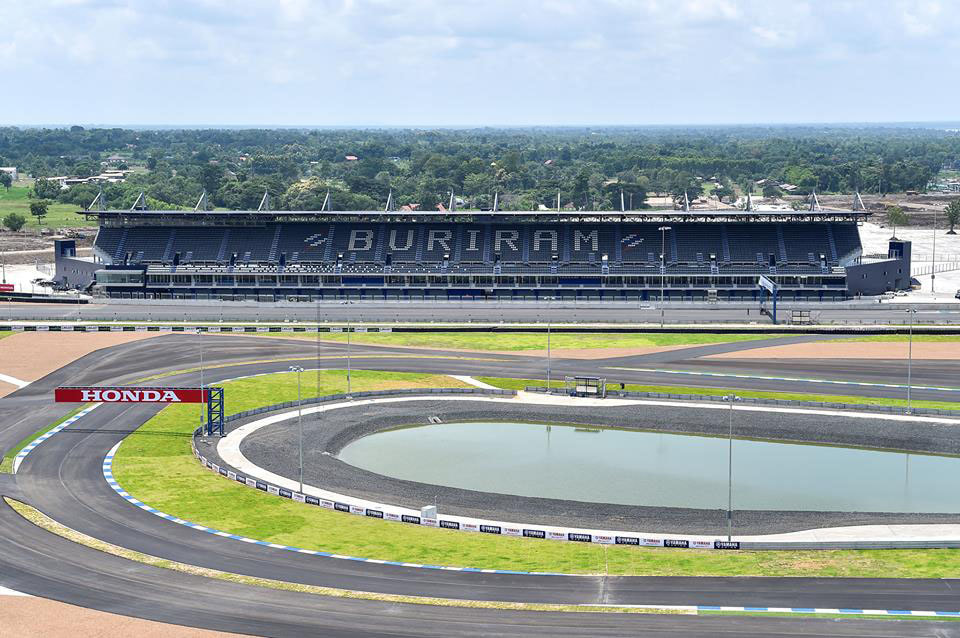
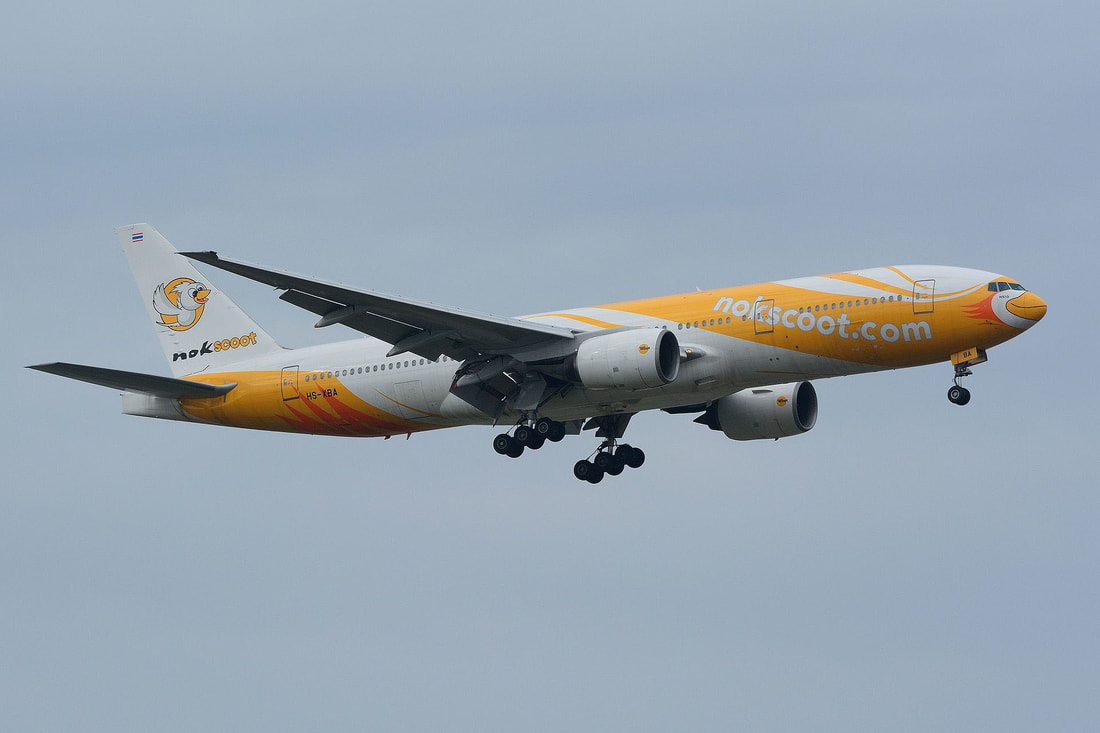
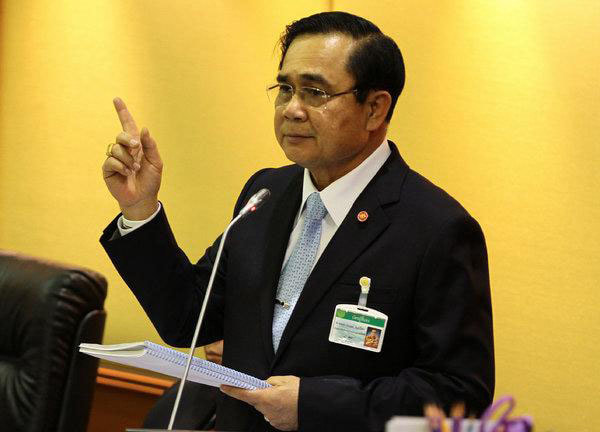
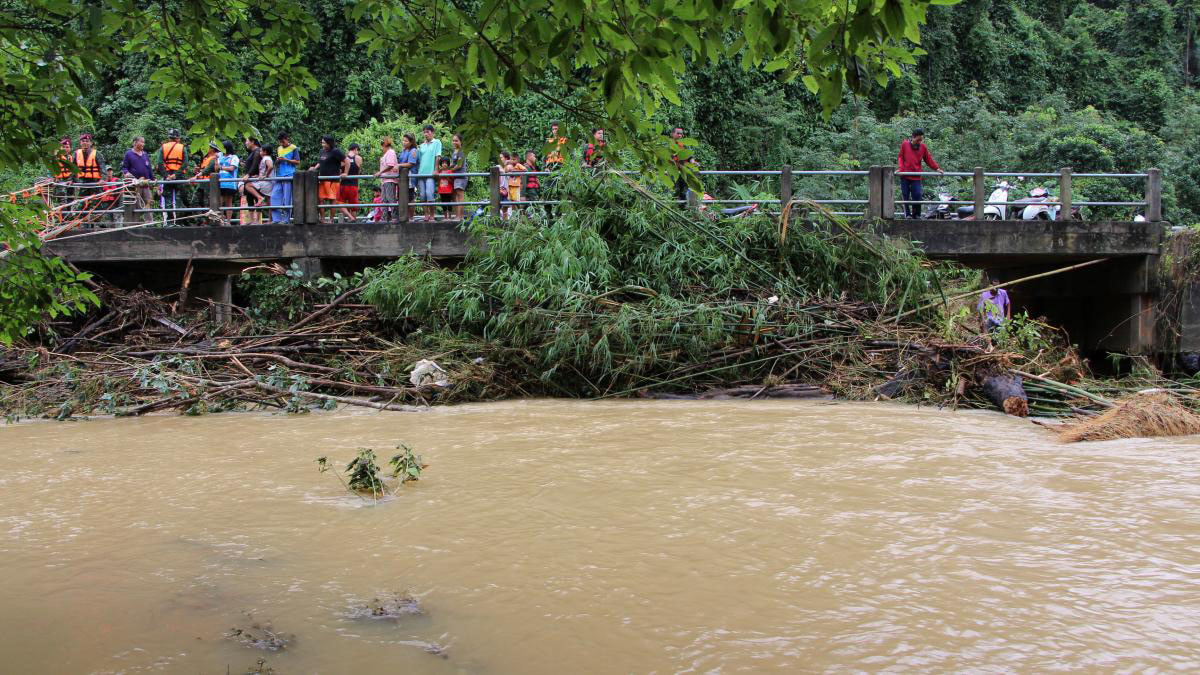
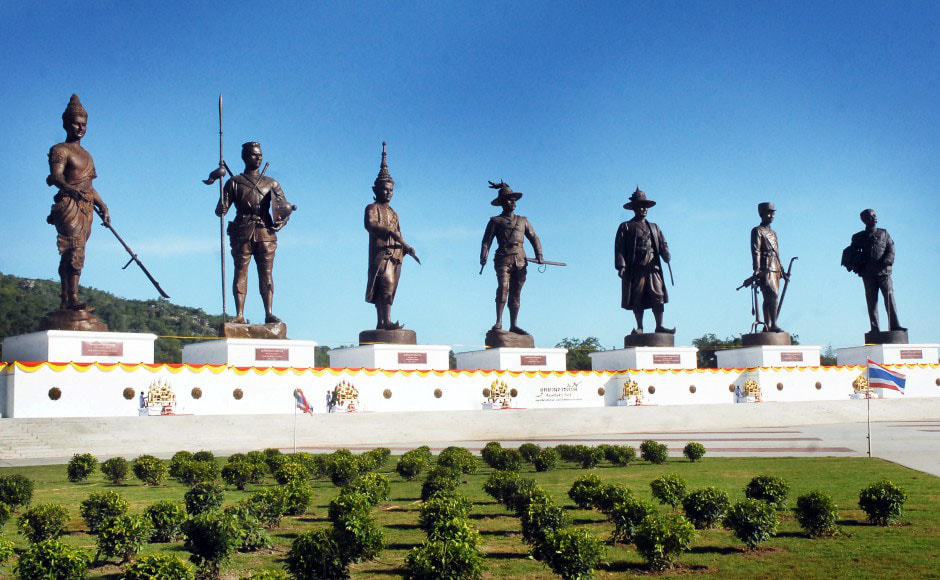
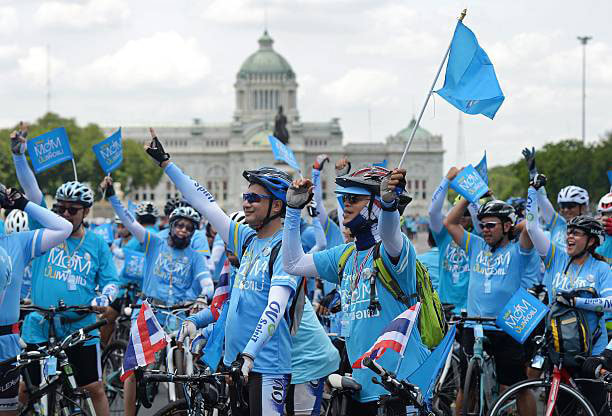
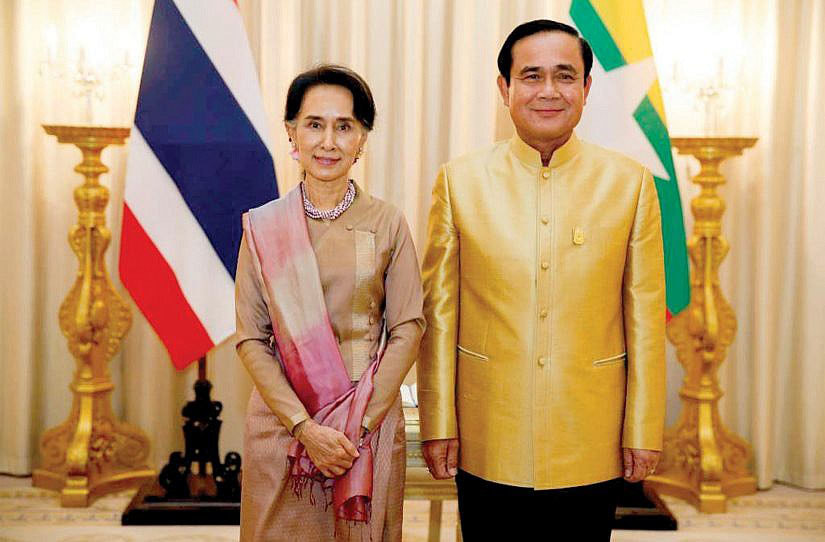
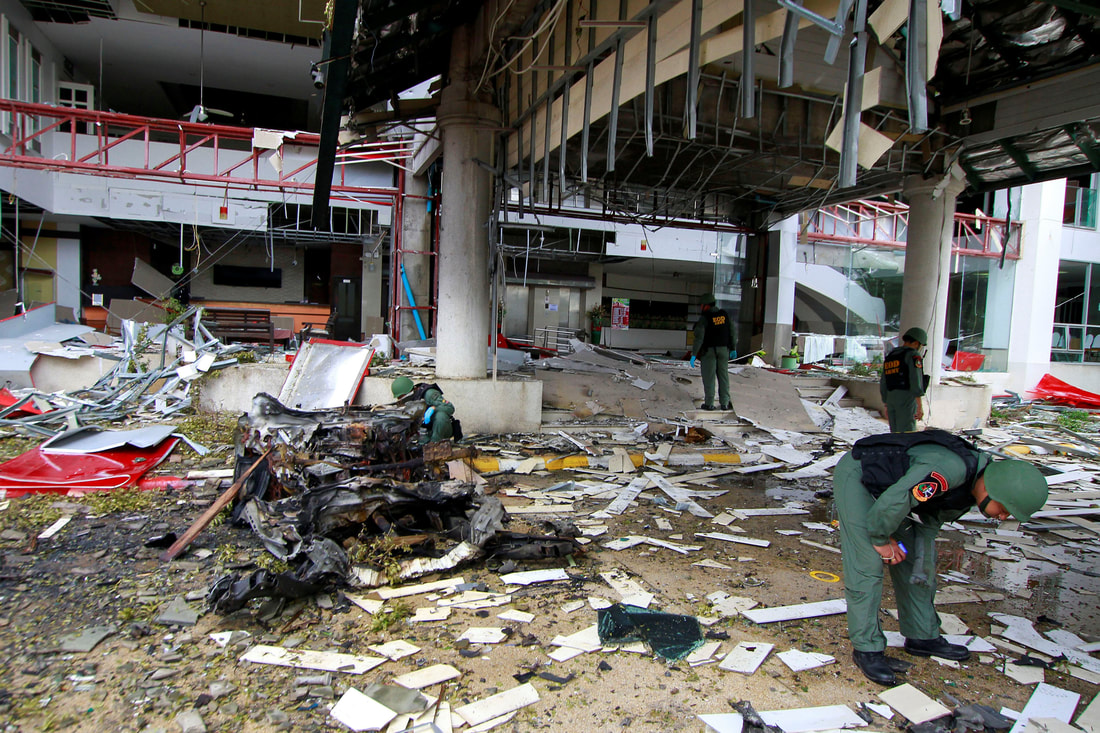
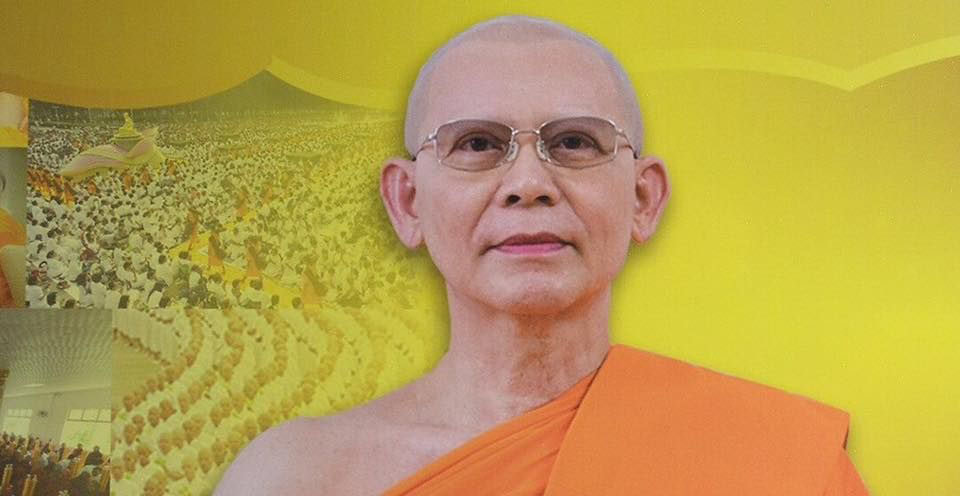
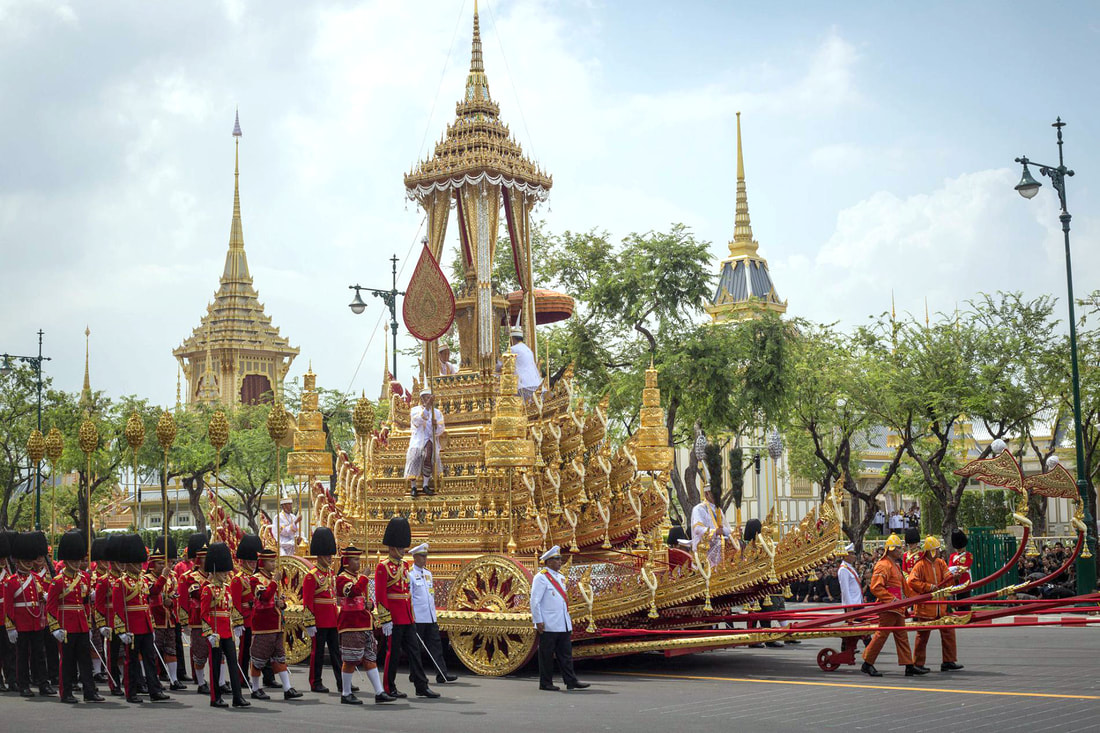
 RSS Feed
RSS Feed



